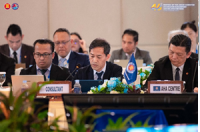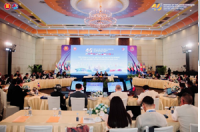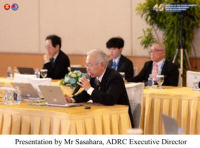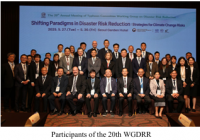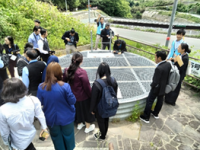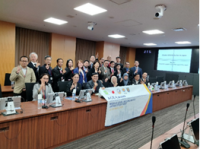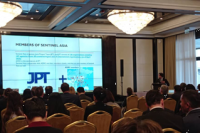20-21 May 2025 Cambodia
Asian Disaster Reduction Center (ADRC) facilitated two back-to-back consultations on the development of AADMER Work Programme 2026-2030 at the sidelines of the 46th Meeting of the ASEAN Committee on Disaster Management (ACDM) and the 7th ASEAN Disaster Resilience Platform (ADRP) meeting, 20-21 May 2025, in Siem Reap, Cambodia. AADMER (ASEAN Agreement on Disaster Management and Emergency Response)is a regional and legally-binding agreement signed on 26 July 2005 and enacted on 24 December 2009. Since its enactment, ACDM has developed three AADMER Work Programmes: AWP 2010-2015, AWP 2016-2020, and AWP 2021-2025. The AWP 2026-2030 is currently being drafted with ADRC serving as consultant.
The first consultation, held on 20 May 2025, was focused on seeking the views of ACDM members on the draft contents of the AADMER Work Programme 2026-2030, particularly: i) the vision; ii) priority program outcomes; iii) outputs, and iv) implementation mechanism and the monitoring and evaluation framework.
The second consultation, held on 21 May 2025, was focused on seeking the views of ASEAN Sectoral Bodies (ASBs), primarily among the members of the ADRP, which is the main mechanism pursuing synergy and cross-sectoral collaboration using AADMER as the regional policy platform. The areas of consultation included: i) validation of the list of ASBs involved in cross-sectoral outputs, ii) confirmation of the mechanism identified; and iii) verification of possible joint collaborations with ACDM.
Participants in both consultations provided meaningful insights and guidance in updating the draft AWP 2026-2030.
(2025/06/30 15:40)


